|
When families gathered on Thanksgiving day, some realized that their senior was not the same as last year. Families often respond by doing internet research. The internet is a good first step. However, some sites make outlandish claims. I saw one that offered a treatment that “cured Alzheimer’s”. There is no cure and some of these sites can offer dangerous suggestions.
Here are a few reputable sites that offer reliable information: Alzheimer's Association. This site also has a page devoted to explaining the different types of dementia. It also lists other physical conditions or environmental conditions that can look like dementia. American Society on Aging. It can feel encyclopedic in size. The society has done decades of research and offers reliable information. It’s a good second step. AARP offers many programs and information for families as well as seniors. Each state has a chapter with offices in each area. Look up your state to find help in your area. And Senior Sidekicks offers a course; Preparing to Parent Your Parent, to prepare families for the practical issues they will face as they become caregivers. Contact us about teaching this course in your church or at your job. Call (217) 787-5866 or email us for more information.
0 Comments
Age is a stage of life, not a diagnosis. Sadly, some seniors think is a diagnosis. Seniors may accept pain or changes in their bodies as “just getting old”. Pain is a symptom. It’s our body’s way of telling us (at any age) that something isn’t working. Please take your senior’s complaints seriously, even if all they say is; “I don’t feel good.” That complaint is a place to start. Repeated complaints indicate a persistent problem. I use three points to examine complaints: frequency, intensity, and duration. How often do they complain? How long have they complained? Do they report things are worse or better than earlier? Doctors analyze these kinds of information to help them decide what questions to ask next. Please complain; it’s helpful.
Some seniors believe they shouldn’t complain. You may need to explain to them that this is a report on their health rather than an annoyance. Some seniors complain without words. Does the face contort? Does the voice tighten? Do they seem more irritable at certain times of the day? Something’s going on. Ask them to please complain to you out loud. Earlier this year I knew something was “off” within me. I went to the doctor but the lab tests were inclusive. Nevertheless, I persisted. I tracked what I felt and when. I brought this information back to the doctor and insisted on considering other options. Eventually my pattern was clear enough to prompt the doctor to ask other questions. I received a new medication and it worked! I complained, but really I was advocating for myself. Some seniors cannot self-advocate. That’s why caregivers are so important. Please persist if the first treatment doesn’t work. Please complain for them. By the way; this is a portion of my course; Preparing to Parent Your Parent. Senior Sidekicks can bring this course to your church at a time convenient to you. Imagine you’re sitting quietly in a meeting or religious services; suddenly your heart starts pounding. You feel like your blood is coursing through the veins in your arms and legs. It’s bewildering and scary: Why?! There is nothing about this setting that calls for such a reaction. Yet, you have this reaction. It is important that caregivers understand what leads to this reaction and what they can do about it.
It’s a “fight or flight response gone wrong. It developed when we had to run away from Saber Tooth Tigers. Our ancestors were successful, that’s why we’re here. Those ancestors passed down to us their methods of coping with their world. Our modern world doesn’t have the same kinds of stressors, especially for caregivers. Our stressors are less clearly defined And they last longer. Our stressors change shape; one minute we’re dealing with the house-the spouse-the kids-and-the job. Then there’s a crisis and we’re caregivers for Mom! From that point forward, our caregiving increases but with no way to know when the need will become greater or how long caregiving will last. Our bodies respond as our ancestors’ once did; we produce Cortisol to rise to this crisis. The process goes like this: Stress causes the Hypothalamus to secrete. That triggers the Pituitary Gland to secrete. The Adrenal gland secretes Cortisol. This process has several names: HPA Axis, HPA Cascade or Syndrome X, or AKA Insulin Resistive Syndrome. (Wouldn’t it be helpful if we could all agree on one name?) It’s not the crisis that’s the problem. It’s the crisis that doesn’t end that creates bad effects on caregivers. The effects show up in different ways. Cortisol encourages promotes fat deposits in the outer layer of the body, especially the waist. Some caregivers gain weight. We can measure this effect by doing a BMI (Body Mass Index). Other caregivers have different conditions; heart disease, Type-2 Diabetes and Stroke. We can measure Cholesterol levels through a C-Reactive Protein lab test. We can also do a cheek swab to check Cortisol level. However, how many doctors don’t even ask patients if they are caregivers. The tests are there but they are not used to evaluate identified caregivers at this time on a general basis. You need to ask for them. When our bodies rise to meet a crisis: they must also let down. Even Saber Tooth Tigers would give chase and then give up. The caregiver’s duties do not end the same way. In fact, they do not “end” unless we place some “ending points” into the caregiver’s life. That is the role of self care, to provide end points such as respite and small moments. That’s why it’s necessary to spread the caregiving load so it doesn’t fall on one person. That is why we need to enlist family to give caregivers this kind of support. Otherwise, the caregiver can be sitting quietly in religious services and the Cortisol response “alarms” for no exterior reason. We need to advocate for caregivers to be recognized in the medical arena. Learn more by taking our course; Preparing to Parent Your Parent. When someone advises you to, “take care of yourself”; that doesn’t explain how. Elder caregiving is so new that some methods are still under development. However, we know some things that work and some to avoid. Self care does not mean a day at the spa. For many caregivers such a day would be out of reach financially or out of time to devote to a spa. Therefore, plan to care for yourself in moments, not hours. Think about your life like your heart; it beats all the time. Actually your heart takes a tiny rest between each beat that allows it keep going. When you care for yourself in moments, you pause and continue.
Try these ideas. Put up a sign saying, I NEED A MOMENT, to remind yourself to pause. Put up other signs family can see to remind them that you might need a moment before you can respond to their requests. Is the person in need bleeding or on fire? If the answer is no, then it’s OK for you to take a moment. It’s OK to train your family to allow you to do so. It’s OK for you to ignore repeated pleas for your attention (for a moment). Training takes time but you’re worth it. What do you do in that moment? Be sure you are safe. If you’re up on a ladder, get down first. Focus on something blank, like a wall or the ceiling. Breathe, deeply, through your nose, hold and count to 3 or 4. Let your breath out through your mouth but slowly; 1-2-3-4. Now, if you can afford the time, try looking at something peaceful; out a window, at a picture, or at some memento that is meaningful to you. Breathe again the same way. Many caregivers respond with; “I don’t have time to …” You’re right, time is at a premium. Most caregivers find themselves in that role at the same point they also have the house-the spouse-the kids-the job-the pets and MOM! You have a lot on your plate. Sometimes caregivers believe they can wait until they have time. By waiting until later, the damage from lack of self care will have done its worst. Undoing damage is much harder. The best intervention is prevention. Prevention comes in bits of time you claim now. Suppose you actually have a whole hour to yourself. It’s a gift! Ask yourself, “What refreshes me?” Notice I didn’t say what can I eat nor where can I sit down? Some caregivers eat to cope with stress. We need nourishment but not that way. Rhythmic movement, like walking, can help us feel less worn and is surprisingly refreshing. If you can’t go far; walk around the house or around the block. If you live in an apartment building, walk in the hall. “Go get the mail”, that errand will buy you a few minutes. Try to set a self care routine just as you have set other routines with child care or at work. Routines help us get things done without doing us in. Some things to avoid include sugar and alcohol. The stress hormone, Cortisol, takes sugar and converts it into weight around your middle. Sugar may not be sweet; baked goods convert to sugar. As part of a balanced meal they’re fine; as a snack, not so much. Large amounts of food can have a numbing effect; like a Thanksgiving dinner. When we feel numb, our minds seem to turn off. When you see you have time and turn to the refrigerator; ask yourself why are you eating? In a similar way, alcohol can create a numb feeling. We believe we’re relaxed but a caregiver’s immune system is more vulnerable and needs extra protection that alcohol doesn’t provide. Alcohol is also a depressant, which won’t help caregivers. So how does one “turn off” the constant “list-making” that goes on in the caregiver’s mind? Try other things. Try relaxing teas like Passion Flower, Elder Flower or Chamomile. Try playing some relaxing music that’s meaningful to you. Try a rhythmic movement “dance” (try it with your partner). Try a hot shower or better, a hot bath. Try placing essential oil of lavender in your bedroom. All of these set the stage for relaxation. Develop your own mediation or routine to think about at bed time instead of a to-do list. There are also tapes available. So self care comes in moments you claim as your own. To learn more ways to cope, take our course: Preparing to Parent Your Parent. Caregivers experience a jolt when confronted by their bosses about changes in their job performance. For some caregivers, these issues are the first sign that something has to change: now! Perhaps they didn’t realize that they were regularly tardy or missed important meetings. Did they know that they also missed important details in doing the job? Your boss noticed.
Most bosses don’t know what to do to help the caregiver with those issues. They just want employees back on track at work. Senior Sidekicks knows how to help. Take our course Preparing to Parent Your Parent to get back on the job track. Why take this course; because you must handle caregiving differently. In just 5 classes, you will learn ways to cope with and better manage caregiving. Senior Sidekicks brings this course to you; at your church or club. Senior Sidekicks teaches Preparing to Parent Your Parent at your convenience; evenings, weekends, lunch hours or days. One low price gives you 5 classes, a manual, and chance to bring your significant other for half price! This course shows your boss that you’re tackling this problem and wrestling it to the ground! Call Senior Sidekicks today at 217-787-5866. |
Author "A Senior Moment" is written by Ms. Sara Lieber, owner of Senior Sidekicks. Ms. Lieber has over 30 years of experience in senior care. Archives
March 2024
Categories
All
|

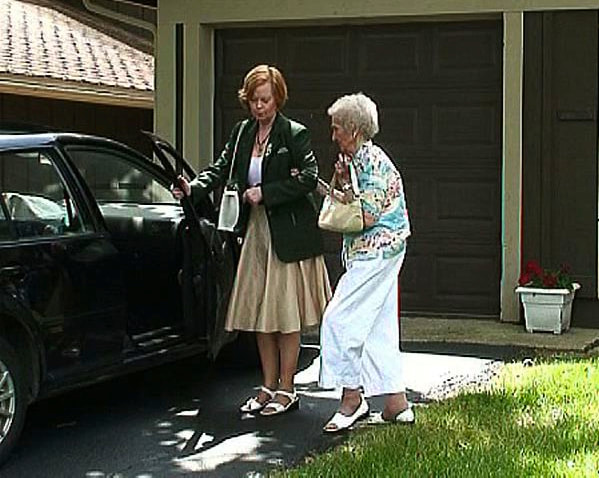
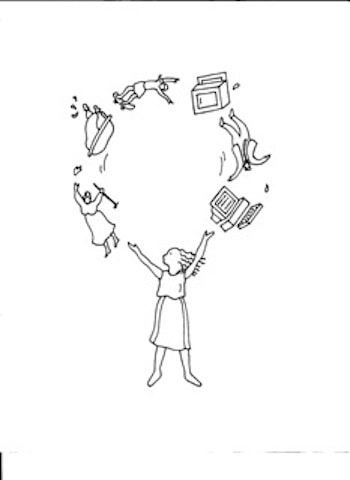
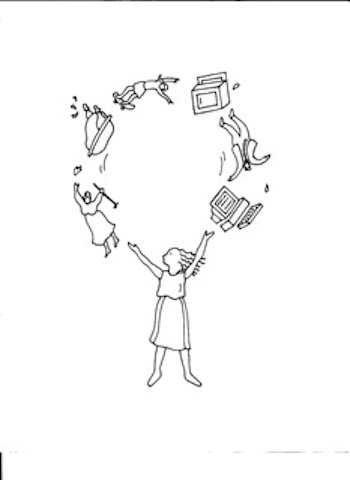
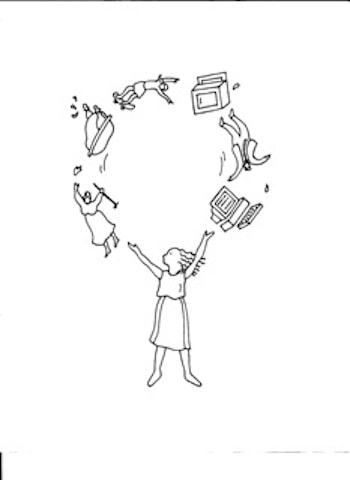
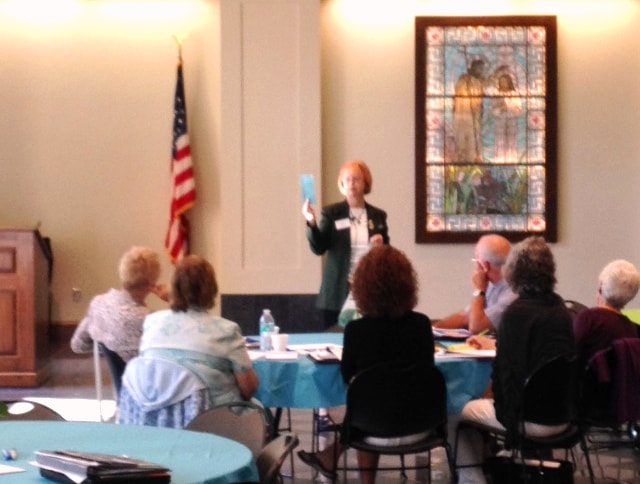
 RSS Feed
RSS Feed